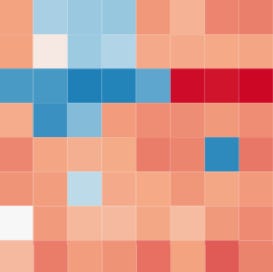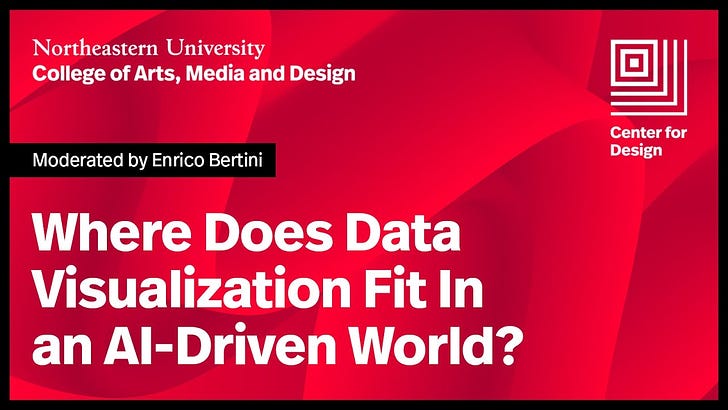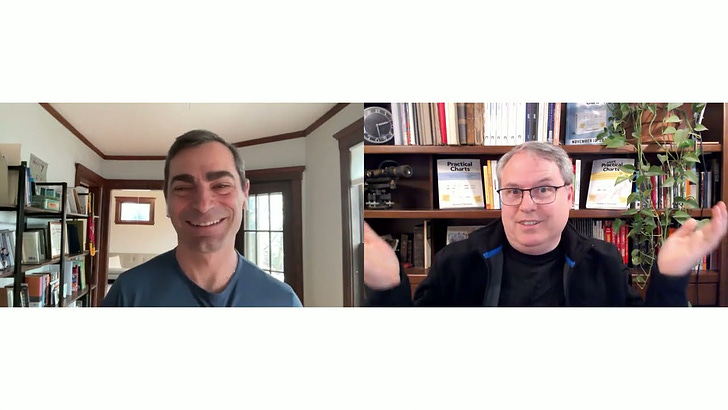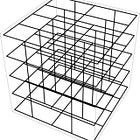Monthly Update: March, 2024
Subscribers growth, experimenting with videos, updates on series and courses, etc.
Hey, frieeeeeeends!
Another month has passed, and here I am providing a new update. FILWD is growing organically and steadily, and I am developing a better picture of where it could and should go. Mostly a source of inspiration, intellectual challenge, and learning for everyone involved. Myself included! Writing and building a community around it is helping me enormously to think about data in news ways and, ultimately, I hope, to provide value to you dear readers.
We reached 1500+ subs!
A few days ago, FILWD reached 1500 subscriptions, and it’s growing past beyond that. It’s a tiny number by internet standards, but I am super excited so many people are interested in this (admittedly niche) newsletter. All the numbers are going in the right direction and speeding up, and I know this will eventually grow a lot. See this beautiful graph down here!
There is no rush. My goal is to grow slowly and steadily a community that sees value in what I can provide. I am not interested in cheap growth. I am interested in building something that has a clear value for everyone. Right now, we also have a good engagement. Most posts are opened by 50-60% of subscribers, which is pretty good compared to what others get. So, thanks so much for reading, engaging in conversations with me, liking the posts, commenting on them, etc. Your help is invaluable, and I hope many more will decide to engage with me and the newsletter.
Experimenting with videos
Last month, I started experimenting with videos a bit. Earlier in mid-February I posted a report of the AI and Visualization panel we organized at Northeastern University and the post included a recording of the event.
I posted a few reflections on chart choosers a few days ago with a video showing Nick Desbarats and me discussing this topic.
This last post is an interesting experiment I might reproduce sometime in the future. Everything started with a post on LinkedIn. Nick replied with some thoughtful ideas, and we decided to jump on a call, record it, and share it.
I want to experiment more with these serendipitous interactions. Jumping on a call and recording has become super easy these days, and I think it can help clarify ideas quickly.
I am learning how to produce short and useful videos easily. Some people produce really polished videos, but all that friction would be a big blocker for me. So, you won’t see any special effects from me for the time being, sorry. However, I bought a new mic and I have a new highly portable set up that I like. Now, I have to find the right format. I suspect you’ll see more video experiments in the next few months. Stay tuned!
Oh … I almost forgot, now I have a YouTube channel. It’s teeny tiny, but it’s going to grow. If you want to preemptively subscribe there, it’s going to be a useful signal for me to know that you are interested.
Reading club on visualization literacy
A few days ago, I started a new experiment: a reading club. After posting a message on LinkedIn about a set of papers on visualization literacy, I had the idea of organizing an online reading club. I invited a small group of readers to make this first pilot event more manageable, but I intend to expand it if things go well. We will meet in mid-March to discuss a selected group of papers, and I will report what we learned from them here. We currently have about 15 participants scheduled, which seems about the right size for this first pilot event. If you are interested in participating in future reading clubs, no worries. I’ll send more emails inviting subscribers to participate. You can also leave a comment here to let me know, and I’ll add you to the mailing list.
Speaking of visualization literacy, I intend to write more often about this topic. In February, I published my first post on vis literacy, trying to lay out the main opportunities and challenges.
I also did some research in this space a few years ago with a few colleagues and intend to make it a relevant focus of my lab soon. The topic has widespread interest and implications, so I will keep posting about it here.
New and old series
The series on data transformation is almost finished. In February, I posted a new post on the role of granularity. It was a hard one but I am happy how it turned out.
The last post of the series on sorting is still brewing and almost ready. I plan to publish it in the next couple of weeks. Once done, I will explore ways to collate the posts into something more cohesive and permanent. Who knows … maybe even a booklet.
I have a new series I am already working on that I will start publishing as soon as I conclude the series on data transformation. I want to keep it secret for now, but you’ll probably hear about it next month, if not earlier. I am excited to reveal what it is about, and I hope you will find it interesting.
Update on the Rhetorical Visualization online course
I did not make as much progress on developing the next video lecture for RhetVis. My teaching schedule at Northeastern made it hard to make progress, but I am hopeful that once the semester ends, I will be able to speed up considerably. If you have been wondering about it, I want to assure you that I am still working on it and intend to publish more lectures soon. In any case, I want to remind you that you can find the first two videos in my Loom library and now on my YouTube channel.
—
Before concluding I want to mention I was interviewed by Jon Schwabish last week for his PolicyViz podcast and I am looking forward to listening the episode. Jon is an old friend, and we have shared a lot during all these years working in data visualization. Talking with him was a ton of fun, and I hope it will transpire from the recording. It’s going to take a while to see the podcast. Jon mentioned he will publish it in May, if I am not mistaken.
Finally, I want to thank many of you who keep liking the posts, writing comments, and sending notes to me. Understanding what people think and how I can help is incredibly useful. If you want to contact me with a brief comment or request, please do not hesitate. Every interaction is golden.
Thanks for reading!









Dear Enrico, I'd very much like to be added to the viz-literacy reading-club mailing list please. I was introduced to the world of data viz via work and learned over the years via a practical, hands-on approach. I'd love to learn more about viz literacy from a rigorous academic p.o.v. Yanika